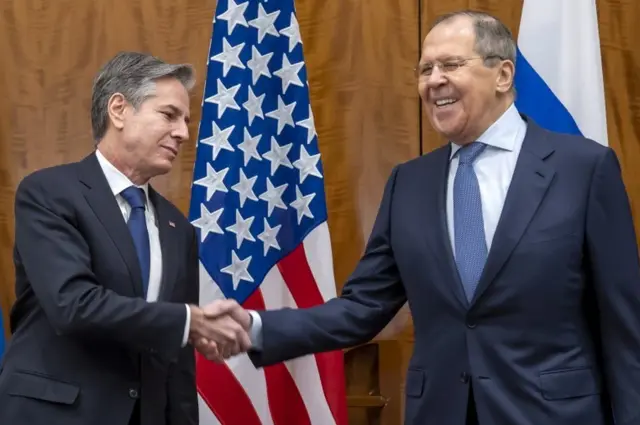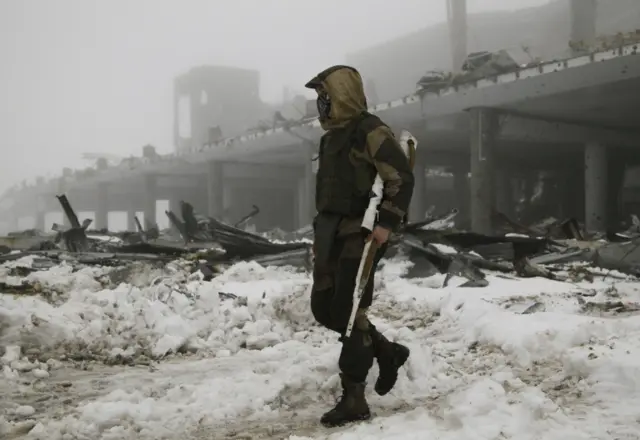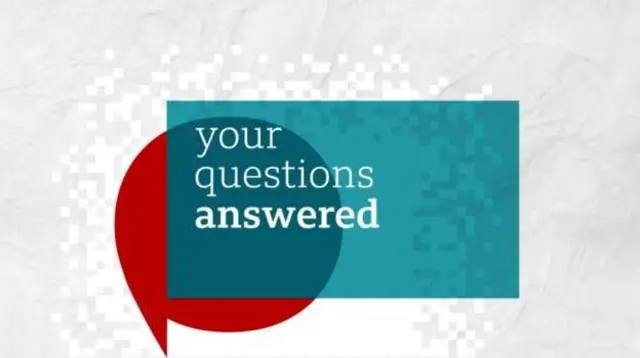
Why are the superpowers interested in Ukraine?published at 14:43 GMT 21 January 2022
from Ernest Onyameamah, 32, in Ghana
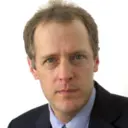 Paul Adams
Paul Adams
BBC International Affairs Correspondent
For Russia, it's all about recreating something that was lost with the fall of the Berlin Wall in 1989: a Russian sphere of influence.
People also ignore how humiliated some Russians felt by the end of the Soviet empire and the West's eager expansion into eastern Europe. It left deep scars.
For America, it's about defending the principle that countries have the right to choose their own destiny, alliances and future paths.
Not just Ukraine, but all those former members of the old Warsaw Pact (a Soviet-led military alliance during the Cold War) who turned to Nato in the 1990s.
It's also about trying, as much as it can, to limit what the West sees as Vladimir Putin's malign influence.
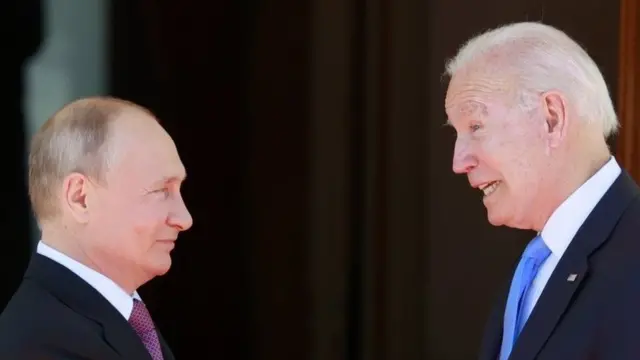 Image source, EPA
Image source, EPA